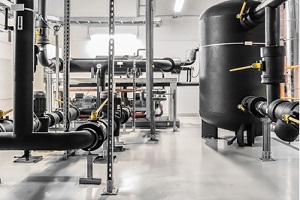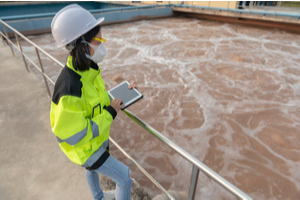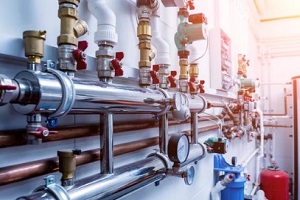 When living in climates that are prone to winter temperatures, the cooling season will normally end mid fall. If you are operating closed loop systems during the cold winter months, it will be necessary to take a few steps to ensure your HVAC system has no issues due to freezing water.
When living in climates that are prone to winter temperatures, the cooling season will normally end mid fall. If you are operating closed loop systems during the cold winter months, it will be necessary to take a few steps to ensure your HVAC system has no issues due to freezing water.
Taking these necessary steps will help avoid any unnecessary shutdowns, keep operating costs low, and extend the life of your system.
Are Your Closed Loops Prepared For Winter?
Buildings using closed loop systems during the winter will need to take a few simple maintenance steps to prepare for potential freezing temperatures. Here are a few steps you can take to properly operate your closed loop water system for freeze protection.
Proper water treatment
 To ensure the water flowing in your system does not freeze when exposed to the cold, you may need to treat it with an antifreeze solution. Adding glycol to your system lowers the freezing temperature of water and allows it to keep circulating.
To ensure the water flowing in your system does not freeze when exposed to the cold, you may need to treat it with an antifreeze solution. Adding glycol to your system lowers the freezing temperature of water and allows it to keep circulating.
It is important to have the correct ratio of water and glycol as there are negatives to not having enough, as well as having too much. To keep water flowing, it is important to have enough glycol to prevent slush from forming. Consult a professional to have your glycol tested and balanced.
Monitoring outside temperature
As cold weather approaches it is important to monitor outside temperatures, so you know when to turn on additional measures to protect your system from freezing. The rule of thumb is that if it’s 40° or colder, your system is susceptible to frost. Besides water treatment, the best way to prevent water from freezing is to maintain flow and stagnant water.
Circulating pumps should turn on below 40 °F
Circulating pumps are designed to deliver water throughout your building’s closed loop system. When temperatures drop below 40 °F these pumps should be turned on to guarantee flow and water from freezing if pipes are exposed to those temps. These pumps should remain on until the cold temperatures subside, and the outside temperature rises above 40 °F again.
Ensure air dampers are closed
 During winter, air dampers should be closed to limit the amount of outside air coming into the building. Behind this louver is where your closed loop coils are located. As temperatures drop, these coils are susceptible to outside air if there is no flow.
During winter, air dampers should be closed to limit the amount of outside air coming into the building. Behind this louver is where your closed loop coils are located. As temperatures drop, these coils are susceptible to outside air if there is no flow.
This can cause the water to freeze and will plug up the system until the springtime when temperatures rise, or even worse cause a coil to burst. It is important to physically go and check that your dampers are closed to avoid unnecessary repairs, which may not even be noticed until you need your system back on and running.
Help From Our Experts
If you are looking for assistance on how to protect your closed-loop systems from freezing, reach out to a professional. Tower Water can offer an assessment of your system, recommendations for operating your system, and a monitoring plan to ensure your system stays protected. Contact us at (212) 518-6475 today to get started!
